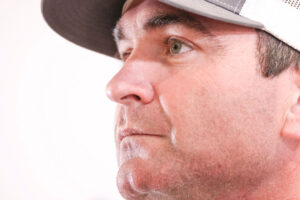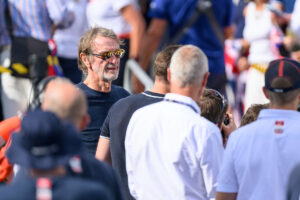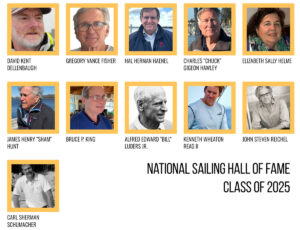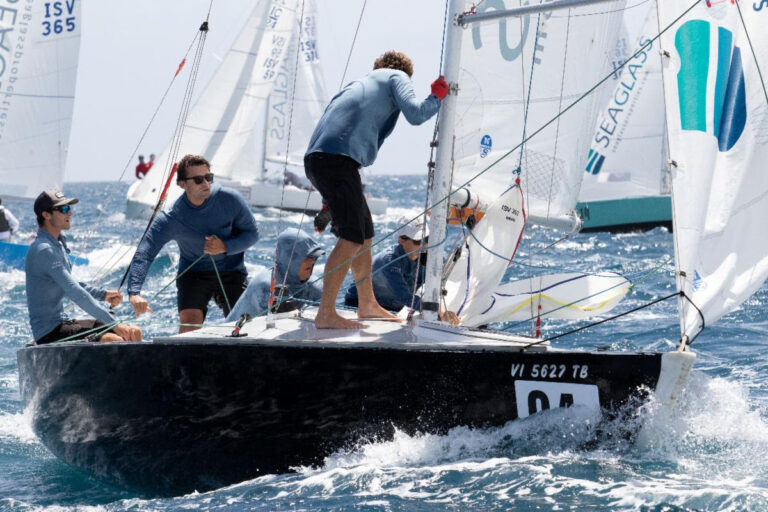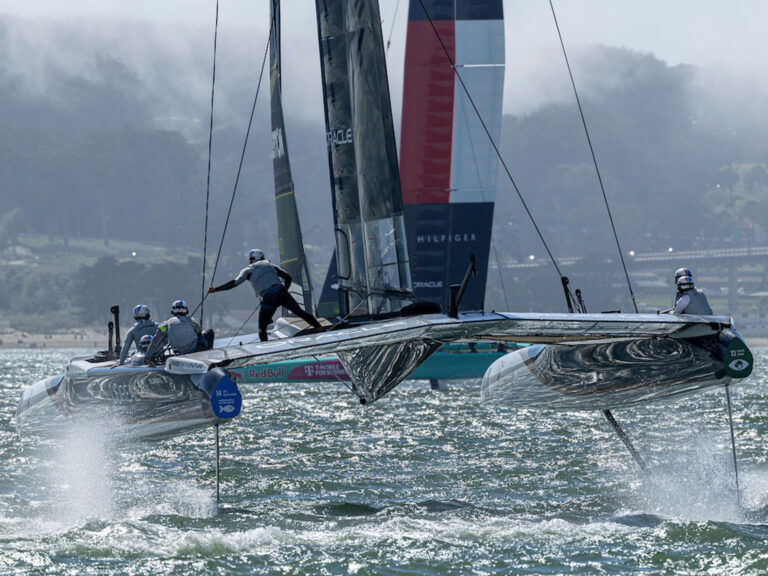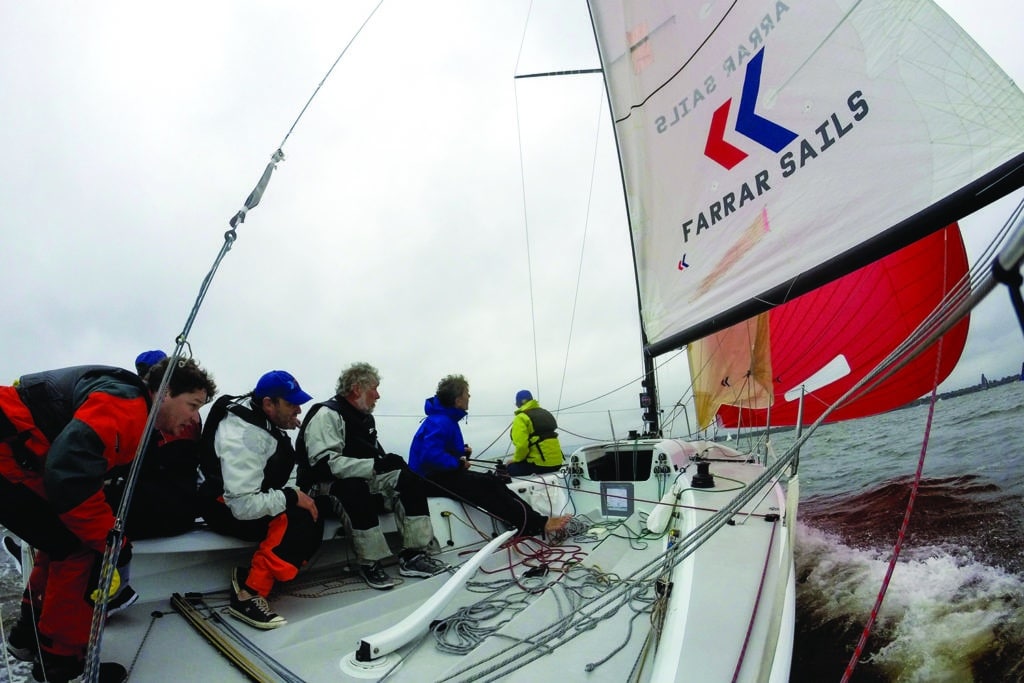
I didn’t sail as a kid, and I was a simple cruiser when I sought out racing. The first guy to take a chance on me was Elliot Peterson, who had a Merit 28. After a few months of Wednesday nights in the Solomon Islands, I’d discovered my new passion. The only way to fuel it was to keep finding rides.
I signed up for the 120-nautical-mile Down the Bay Race from Annapolis to Hampton, Virginia, aboard Trevor Harney’s Merit 25, Audrey. All the good sailors had looked at the forecast and decided against an upwind slog on a 25-footer in 25 knots, so there was room for me. Three of us began and finished the race in a driving rain, winning our class. With my first big win, my addiction grew stronger.
The next step in my journey was aboard the 1930s-era Chesapeake Bay log canoe Flying Cloud, owned by Allan Noble. Originally designed as oyster boats with shoal drafts and centerboards so they could reach the shallows, these historic 6-foot wooden boats are overcanvassed and unballasted. The experience of sailing them is a combination of yelling, dynamic body movements, lots of 10-ounce beer drinking, and even a little sailing. Under the tutelage of Ed Schut and our skipper, Sean Callahan, both lifelong log canoers, I learned a few new expletives and a lot about racing.
Through circumstance, I was invited to help out aboard the competitive Mumm 30 Rhumb Punch, owned and driven by John “Papa” Edwards. Here I found that my initial crew value was as nautical scapegoat. What started as an accurate reflection of my performance became a team-building activity. When, inevitably, I would rig something wrong or have my trim not quite right, someone (usually Papa) would yell, “Damn it, Ridgey!” As I progressed in my abilities, I gave my fellow crewmembers fewer opportunities to shout our battle cry, but they soon found a workaround: Anytime there was any issue, it could just as easily be blamed on me. I discovered that sometimes it worked best for me to beat them to the punch and yell my own “Damn it, Ridgey!” My sense of humor and ability to take a joke kept me getting invited back. We sailed fast and hard, but we had fun.
During these three years, Rhumb Punch traveled to Key West Race Week, Charleston Race Week and the Annapolis NOODs, but I did not. I knew I wasn’t prime-time regatta material yet. I gradually progressed in each of the crew positions. It was incredible to be part of such a successful team. The Mumm 30 is a veritable high-performance classroom, and on Rhumb Punch, I feasted on knowledge.
In December 2015 I got an email from Peter D’Arista, the owner of two local Donovan GP 26s. I was being called up to the majors and had a ride for Quantum Key West Race Week 2016. This was my first opportunity to sail with true professionals, and though I knew I wasn’t one of them, I resolved to give everything I had and learn as much from the experience as I could.
On a blustery Key West morning on Day 2, I arrived at the dock and realized for the first time in my life that I was hoping the races would be called for the day. I needed to recover from the previous day’s blow. I decided then and there that this would be the last time I would feel this way, and committed to improving my strength and endurance. To be part of a successful team, I had to ensure I was physically up to any task in all conditions.
Each of these experiences taught me different lessons. Although I continue to progress, I strive to learn something from each race and program. After Key West, I asked Joe Gibson, a pro from Annapolis, for his advice on developing as a competitive sailor. “Never be the best sailor on the boat,” he told me. Luckily, I never have been, but I think what he meant is to surround myself with others who can help me develop. Early in my racing, I decided I would take any role on any boat, but as I progressed, so did my value and the boats, skippers and crew I raced with. I learned how important it is to show up early, stay late, work harder than anyone else, be fun, and be interesting. Develop thick skin, learn to take and make a joke, and be ready to ride.

